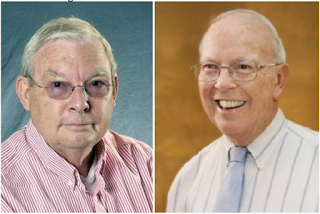The two ends of reason
I do not write such posts. I do not know who wrote this post. I think it's me, but I'm not sure how I wrote this post. But when I do write such posts, I feel happy that somewhere deep within, there is this little bearded smiling philosopher sitting inside me, and telling me what to write.

Imagine him sitting. Yeah. Like that.
-
I have always been intrigued by a couple of things that have, since the dawn of history helped shape human cultures and sculpted the way forward for civilizations. Not surprisingly, these have also been some of the most glaring epicenters of human conflict - to the point that even today, they require careful treading in public forums.
What do I refer to?
Quite simply, the two pillars of human existence - faith and reason.
Faith - or belief - that one-half of the human psychology that isn't based on logic or proof. That one half that scorns at reason and turns a blind eye to what the brain tries to work out.
And, reason. The exact opposite of faith - the half that believes in the systematic deduction of a complicated result from previously proven results and axioms. The half that looks at the heart, does a couple of facepalms and tries to convince it that it is all messed up. Needless to say, it generally fails.
Each of these two seemingly contrary ideas are interesting in their own unique way; each of these two ideas have their own school of thought, with the average human being either being given to one, or to the other; however what is particularly fascinating, more so than any one of these ideas, is both of them in the same light; In other words, their potential intersection.
I make a rather precocious assertion here, which is interestingly, fueled by both, my faith and reason and which I daresay, might ruffle a few orthodox feathers. Nevertheless here it goes :
Reason has its limits, while faith is limitless.
Rephrasing that into yet another precocious statement.
Faith picks up where reason loses out.
Now before going ballistic on me, think.
What are the frontiers of reason as it stands today? What has science been able to explain?
A lot of things indeed. It has explained why the earth goes round the sun. It has explained why the universe is expanding; how life works; why things happen in a particular sequence instead of the reverse. Most of the observable phenomena that happen around us - have been immaculately explained by science and quantified in the form of a set of rigid mathematical equations.1
We know that when science explains something it does so with reason. It would be foolish to disregard any component of of a rational framework. Why? Simply because it has been proven to be true or untrue. But then, the skeptic can go deep into the very foundations of reason, point at the axioms and ask "So who's proven these? Why do we consider axioms to be true?" For him I would recommend reading the Incompleteness Theorems put forward by Kurt Godel, that succinctly establish the limitations of all but the most trivial axiomatic arithmetic based systems. Do not bother if that last sentence sounded Pashtu to you. It is not important in our discussion - not even one bit.
We do agree that science has explained most of the things that we see around us. Yet, science isn't complete. It hasn't explained a lot of things too. In fact, if there is a sum total of inexplicable phenomena, then this sum would overwhelmingly outweigh the sum total of the explicable things. Science has explained most of the things that we observe - but the fraction of things that we do not observe, that we cannot observe is a far greater fraction. And all that science has done with this fraction is try to extrapolate the known in an attempt to gauge the unknown. Again, this has worked remarkably well in most cases - be it with explaining the Big Bang. Explaining evolution. Explaining the quantum theory. These are things that we cannot completely observe; yet with a sufficient amount of reasonable extrapolation, we can actually form a fairly accurate idea of what goes or what has gone on under the veil of the unseen.
However, in spite of beautifully explaining billions of natural phenomena with amazing alacrity, there still are some things that science hasn't quite been able to explain; that science hasn't quite been able to put its fingers on. Therefore it does makes sense to call these, the limits of the science that we know today - or, the ends of reason.
What are the ends of reason? Roughly, there are two.
One, the beginning of life. Throughout human history, an alarmingly large number of philosophers have speculated about this issue. A gazillion scientists and rationalists have tried to find the true essence of what life is. What is that elusive thing that makes a cluster of non living atoms - living? After all, every living organism is made up of atoms and molecules; of protons, neutrons and electrons; which are fundamentally inanimate. What is it, that instills life into us then?
The most widely accepted answer to this question is that a favourable combination of atoms and molecules is all that it takes. You arrange ten million molecules randomly - you won't see a thing. But if you follow an order and arrange them so as to make this arrangement conducive for life - then presto! A living cell is born.
Of course, no one person does this ever. No one will be wasting his time to arrange billions of atoms to produce life, nor will anyone ever succeed in this gallant endeavour, should he begin. So the question that science cannot answer today, is who does this? Why and how do inanimate things auto-arrange and produce life? The second law of thermodynamics and chaos theory are vital tools here, in explaining this - and at a high school level, it is fairly easy to say that something happens if it happening increases the entropy of the universe.
But why?
Just like Newton's Laws and Maxwell's Laws this is again, just another law - that is accepted at face value because it does not go against that which we observe. Has never gone and hopefully, never will. We take it as an axiom. The verity of this axiom can be challenged - the only consolation regarding accepting it without a murmur takes us into Godel's Incompleteness Theorems one more time. Which I swore, you wouldn't need to know, and hence I shall cut past.
Thus, what it all boils down to is that, somewhere there is ample vagueness in the theory of how life began that not even the best minds on the planet have been able to rack and figure out. And I doubt they will.
The second limit of reason is the expanse of the universe. Science has proven, with the help of some remarkable technological advancements that the universe is expanding. Even the rate of expansion has been ascertained with a decent level of accuracy.2
But what then? The universe is happily expanding, we are all learning the laws of physics in high school - everything makes sense. All is well.
But what if, you wake up one fine day, and read the headlines "The universe has stopped expanding". What are the likelihoods of that happening? To answer this let us once look at the various theories that people have put forth to explain how the universe will end.
- First up, The Big Freeze - This theory takes the current density of the universe, and the general preponderance of evidence that we have and states that the universe expands indefinitely, till the temperature everywhere reaches a pre determined low asymptotically. This predetermined low is considered to be the absolute zero. So in the end, everything freezes and dies out. Good bye choco lava cake; good bye Formula 1. Nothing exists any more. Thank you for your time.
- Next, The Big Rip - This is a more dramatic concept, and far more interesting than a slow and steady decrease in temperature. This assumes that the density of dark energy increases with time in the universe. As a result, with continued increase, at some point in the future, everything just goes Poof! splitting into elementary particles once again. Dust thou art, to dust returnest. And hello, we are all dead.
- Third, The Big Crunch - which is literally the opposite of the Big Bang. This theory assumes that the average density of the universe is not constant and that some day, the universe starts to contract and then slowly, everything collapses into a Singularity. This theory also predicts a subsequent Big Bang after the Big Crunch, which leads to the idea of an oscillatory universe - creation, sustenance, collapse, creation, sustenance, collapse and so on.
- The Multiverse Theory - this theory takes an entirely different paradigm to explain the future of the universe. This states that our Big Bang is, but one of multiple Big Bangs that have already created several other universes elsewhere, and still are. These universes are either made up of matter or anti-matter, and whenever they come too close to each other, annihilation occurs, releasing a lot of energy - all this should lead to increased entropy and thus to a steady freeze, as speculated by the Big Freeze model - but since there'll be more and more Big Bangs happening all around, you'll probably get more universes to reside in. (However mental that might sound.)
There are other theories but then bringing them in here would be digressing. But what is common to all of these theories, is that not one theory has a proper scientific basis to it. They are merely attempts to try and apply the laws of physics in areas where their validity isn't obvious. They are all predictions, assumptions and empty speculations. No one has managed to stand up and decisively state that, "And this, ladies and gents, is how the universe shall end."
The end of the universe is thus, something that is as vague to rationalists as is the origin of life. To bring in a couple of pretentious terms, the microcosm, and the macrocosm are still not fully understood.
This is where reason fails to hold. You cannot apply reasoning here to figure out the how, the what, and the why.
And this is where faith comes in, riding on a fine steed, decked in shiny armour and helps saves the day.
You can always make up your theory about something, that you are unsure of, whether it is true or not. But then, you feel happy because it satisfies you. Hence you put your faith in your theory and believe in it.
This is exactly how faith is supposed to work. It is supposed to pick up from where reason ends and boldly predict something that the person is not sure of. Faith isn't blindly following age old rules without questioning them. Faith is not about having utter disbelief in established reason. Rather, faith should attempt to complement reason to give each person a holistic overview of everything - and this could very well be unique for each person, given the mix of his extent of knowledge and his beliefs.
Which brings me to my precocious assertion that reason has its limits, while faith is limitless.
You'll always have faith, even if you do not have reason. But the reverse is not true. Faith is ubiquitous, omnipresent - and invisible. It shows through only when the fabric of reason breaks and lets you look into what was under it. That is faith.
As a direct corollary of the above fabric model, if a person has less reason, he sees more of faith, and if he has more reason, he has less of faith. Faith and reason are not antagonistic towards each other. They merely supplement each other and help in the sustenance of the universe. As Sybill Trelawny would say, "Neither shall live while the other does not survive". That is, if they exist, they will exist together. Or neither at all.
Reason will never explain everything. My reasoning tell me that the frontiers of the rationale shall undoubtedly expand. It is expanding, and it will be expanding. But my belief tells me that that it will never be able to explain everything. For everything else that reason will surrender to, there will be faith.
In the slightly distorted words of Alan Turing, mathematician par excellence of the 20th century, "Science is a differential equation. Faith is a boundary condition". A succinct way of summing up what reason attempts to do.
His actual saying had the word 'religion' in it, which I replaced with 'faith' to get my point across.
That was it. Thank you for hanging around till the end. This was a long post, and I'm glad you read it. Please do leave in a comment or two, in case you wish to add something to my thoughts, or to contradict any of the things that I've written here.
--------------------
1 I would recommend reading the book, "Galileo's Finger" by Peter Atkins. This brilliant piece of work explains in layman's terms, the ten great ideas of science that have changed the way we think. The ten great ideas, for your information, are evolution, genetics, energy, entropy, atoms, symmetry, quanta, cosmology, spacetime and mathematics.
2 This rate is somewhere between 50 to 100 kilometers per second per megaparsec. Using the Hubble constant to be 70 km/sec/mps, this means that a galaxy appears to be moving 160,000 miles per hour faster for every 3.3 light years away from earth. Source.


Comments
Even if reason increases(as in the graph), almost exponentially, with time, there will always be that extra bit on top required to make 'the full meaning'(y=2.8).
Loved to read it.. Thanks.. :D
And yes, good to see you blogging too, mate - been a long time. :)
Science, according to me, is also a religion. It is not easy to see that, when it comes to cosmological or creational questions, the "Why?" question which science answers by logical, reasonable theorems is an epic fail because it takes not more than a century before the theorem becomes a laughable mockery.
Taking that the cosmological questions are never solvable, we get to understanding OUR environment and the human nature. In that, science is too arrogant and religion is too meek. I think, the only way to seek truth in that respect is philosophy. The path to happiness and hence happiness itself is found if one has faith in religion/science. But philosophy seeks not happiness, it seeks truth via a path of pure passion.
And, that also doesnt mean that rationality, that which is held in high regard by the intellectuals of this century is the truth.
Moreover, "scientifically inspired understanding of philosophy" is a meaningless combination of words, i would say!
If you take rationality in the truest, extreme sense, it rejects any transendental/metaphysical experience. Rationality wants man to be reasonable, purposeful. So it propounds that there be no passions/desires and that man only work for his true goal, whatever that may mean. So, in essense, it rejects art and the artist in man.
Rationalists, who emphasise so much on the importance of doubt contradict rationality itself. Rationality is so avid about finding concrete logical answers to everything, including the human psychology( which according to it is only as much difficult as a math problem to figure out) that it is much too desperate to overcome doubt. Rationality professes that man is made of atoms and that he is a complex form of an inanimate object, making man and his life a base materialistic process very much similar to the functioning of an engine.
So, if i go by rationality, the logical conclusion for the meaning of life which has been long pondered upon for centuries would be simple. That life is meaningless. Which could mean that suicide is the most logical thing to do of all the worldly things. Because, when the is no meaning to life, where comes purpose and reason?
Hell, we have already seen how bad the results would be if rationality be juxtaposed with philosophy in the form of Ayn Rand.